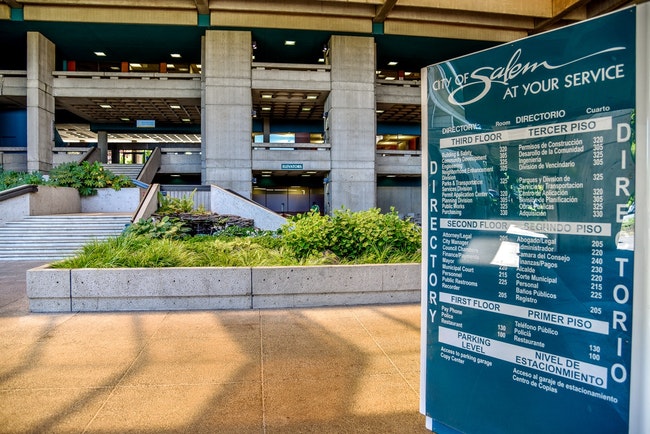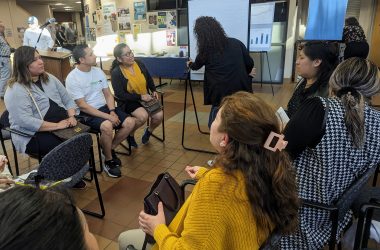
After its third attempt in as many years, the Salem City Council on Monday banned sitting or lying on city sidewalks during the day, effective once certain provisions are met.
The ban comes on the heels of an emergency declaration on March 17 that prohibited loitering on sidewalks and partially repealed a citywide camping ban so homeless people living on the streets would have somewhere to shelter during the COVID-19 pandemic.
The sidewalk conduct ordinance, known as sit-lie, will go into effect after the city provides additional day shelter and access to public restrooms downtown.
Initially, the city planned to address day space by erecting a large covering in Marion Square Park, but dropped that concept.
The city’s emergency ban on public gatherings of two or more people is set to expire on April 28.
The council voted 8 -1 to enact the sit-lie ordinance. Councilor Jackie Leung was the sole dissenting vote.
She expressed her frustrations to the mayor and four councilors who attended the meeting Monday, each spaced apart as other councilors participated by phone.
“In the past year we’ve already moved our unsheltered community several times. Each move has brought trauma and mass confusion,” Leung said. “We banned camping in December under the belief that we would have additional shelter beds. That backfired and unsheltered did the next option possible, finding cover under awnings to protect themselves from the elements. Now with COVID-19 going on, we’ve pushed our unsheltered back out into the elements.”
The ordinance will be in place from 7 a.m. to 9 p.m. each day. Because the ban isn’t linked to the either of the city’s exclusion zones, violators can’t be kicked out of downtown or north Salem, but can face a fine of $250.
On Monday, councilors also allocated $90,000 for temporary shelter, additional restroom cleaning and garbage disposal at Marion Square Park.
The ordinance follows months of increasing exasperation as the council struggled to address the homeless issue downtown after people began congregating under awnings when camping was banned.
The public discourse generally broke along two views: downtown business owners and patrons who were disappointed at the city’s inaction, and homeless advocates who were disappointed at the city’s planned actions.
Plans to house people displaced by the camping ban in December evaporated when local churches declined the city’s request to expand their shelter operations.
Then, a plan to turn Pringle Community Hall into an emergency shelter faltered after neighbors showed up to a town hall and city council meeting to vent their frustration.
In November, Councilors Cara Kaser and Chris Hoy argued for the removal of the sit-lie aspect of a sidewalk conduct ordinance that prevents people from setting up camp on public property.
At the council’s Feb 24. meeting, Kaser came up with a plan that won the votes of nearly all the councilors. It required restrooms downtown, expanded day space and de-criminalized the penalty.
On March 9, Joan Stembridge wrote to city councilors urging them to install toilets and handwashing stations in Marion Square Park that are staffed at all hours.
“My request is now amplified because Salem is facing the start of a pandemic of unknown severity. As Salem’s city leaders, I urge you to act immediately and provide the basic necessities for sanitation for those who are most vulnerable and living in conditions that are most conducive to catching the virus. The time for waiting to deal with the problem of people living, huddled together, unsheltered from the elements with absolutely no sanitation facilities of any kind has ended,” she wrote.
In a letter to the council on March 6, Salem Center General Manager Dana Vugteveen urged councilors to pass a sit-lie ordinance.
“Our downtown businesses remain under siege by the unsheltered citizens who chose to reside on the sidewalks under the awnings and canopies of property owners. We all recognize the sanitary and cleanliness issues as well as the perceptions of unsafe conditions by the general public,” Vugteveen wrote.
Contact reporter Saphara Harrell: [email protected].









